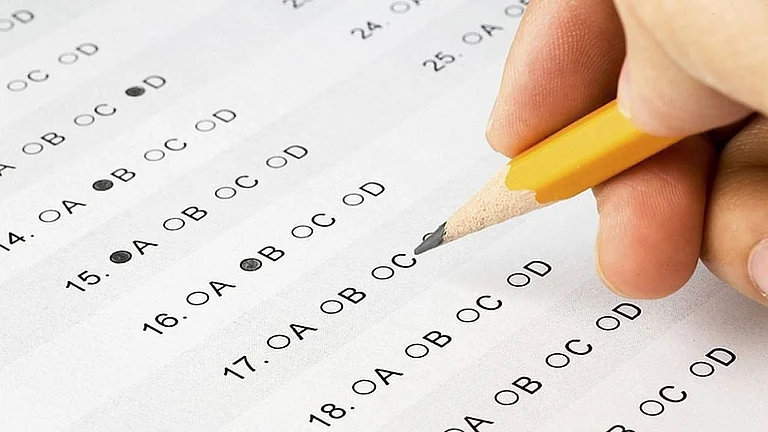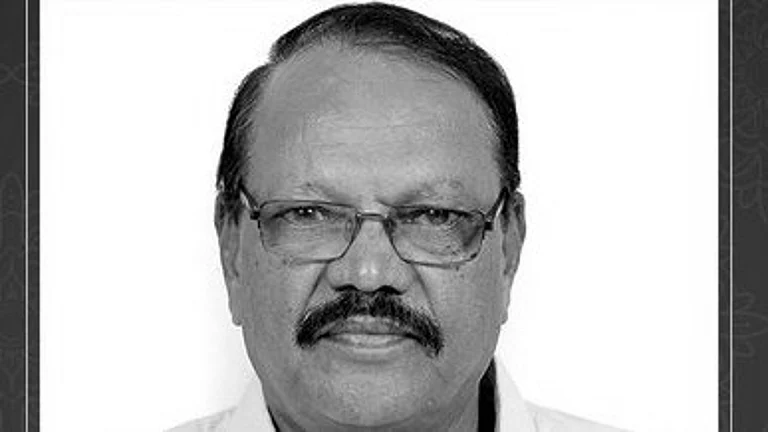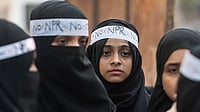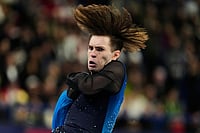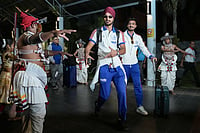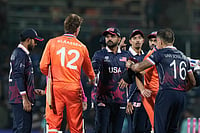Rajni is dressed in a colourful kashta sari and a blouse with a round high neckline and sleeves touching her elbows. The eye-catcher is the chunky gold jewellery – nath or nose pin, a heavy mangalsutra and earrings shaped like a fish. A resident of the Versova Koliwada or fishing village, located to the north of Mumbai, Rajni belongs to the Koli community, who are the original inhabitants of Mumbai. Spirited and fun-loving like the rest of the community, Rajni is a home chef who has an important hand in revitalizing tourism in this fishing village.
Along with her daughters Harsha, Varsha and Triveni, she has started ‘Dine With The Kolis’, a home diner from the confines of her quaint home. Operational during the weekends, this popular dine-out located in this fishing village has been a major crowd-puller. It can only seat eight people and bookings are essential to get a feel of this diner. The whole dining experience with unlimited Koli seafood cuisine including gravies, fries and smokey barbeques with millet bhakris is priced at Rs 1350 for a single person.
Her recent participation in the Versova Seafood Festival – one of the biggest seafood festivals in the country – saw diners sign up for a better part of the year to experience the family’s home dinner. Though there are 456 fishing villages along the coastline of Maharashtra, it is this picturesque Versova Koliwada which has shown a unique way to supplement the income of the village and put it on the global tourist map as a must-visit place.
Every year since 2006 (except the two years during the Covid-19 pandemic), this village has hosted the Versova Seafood Festival in the open area of the village. The village extends onto the white sand beach and the gentle lapping of the waves mesmerizes the visitor. The festival, hosted in January or February when Mumbai is at its coolest in the evenings, has in the last 15 years found its own fan following. Popularised through social media, newspaper advertisements and flex banners, the Versova Seafood Festival has become an important item on the itinerary of seafood lovers.
“Versova has found its own tourism base. This large-scale festival is only for three days in a year, but our village has become popular because of it,” said Rajhas Tapke, a founder member of the festival. Unlike the other Koliwadas in Maharashtra, Versova with its picture postcard beauty has lured a sizeable number of tourists to walk through its bylanes and experience the life and culture of the fisherfolk here. “There is a demand to have this seafood festival at least two times a year. Our womenfolk dressed in the traditional Koli attire and gold jewellery are the biggest attraction. They sing and dance as they cook in the open-air stalls,” said Tapke to Outlook.
The festival also showcases the entrepreneurial skills of the Koli women as the locally sourced hand-pounded spices fly off the shelves into the bags of the customers. The women are the chief drivers of this festival – from pounding the spices, preparing the marinades, cleaning and cooking the Koli cuisines – and are also its biggest draw.
Rajni’s home diner has been an inspiration for many other women here. With Gen-next not keen on taking up the family business of fishing, many families here have lost the battle to convince the children to stay back in the village. While some have gone abroad, some others including girls have joined corporates. Many youths have moved out of the Koliwada and live in the numerous high-rises that dot the skyline in Mumbai’s fast-growing suburbs.
A trip to this village is not just a feat for the eyes, it is also a palate tickler. The various aromas wafting from the open doors of houses set in motion the hunger pangs. As the cool breeze blows in from the sea, the fishing boats with their colourful flags representing each family that owns one, sway in the calm waters of the sea. The beach is lit up by the lights from the houses, whose doors are only shut at night. Handcarts selling seafood is a big draw here. Fish cooking in curries on slow flames, sizzling in oil in frying pans or being barbequed on charcoal are a common sight. People sitting on colourful plastic chairs and tables under the open skies sampling the fare on offer from the Koliwada folk is commonplace here. “The festival has been responsible for people’s interest in our Koliwada,” said Sarika Ladge, another stakeholder in revitalizing tourism here.
Tourism is being used as an important way to get the people to understand the life of the Kolis. With the daily marine catch reducing each year due to pollution in the sea and climate change, the inhabitants of the Versova Koliwada have found newer methods to supplement their incomes.
The total marine catch in India is 3.5 million tons a year. With a marine catch of 433,000 tons per year, Maharashtra ranks sixth in the country. The Versova fish market, located on the white sand beach opens at 4 a.m. every day. Fishermen deposit the catch brought in by their trawlers directly onto the beach. Though the catch is auctioned in bulk, smaller quantities too are available at cheaper rates. The bustling activity in this fish market comes to a close by 9 a.m. as the temperature starts getting warmer.
The next seafood festival may take place either before the monsoons or after it.









